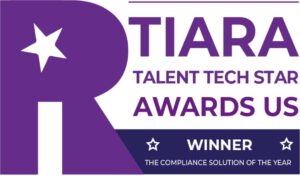On May 11, 2023, the CDC ended its federal public health emergency for COVID-19. After three years of tremendous upset among employers, workers, students, and children, the nation emerged from the disaster with a solid roadmap for handling future pandemics.
Of the multiple areas that COVID-19 altered, one of the most significant was labor law. Both federal and state legislators issued unprecedented new regulations designed to protect companies and employees, some of which remain today.
However, a debate continues concerning COVID-19’s impact on labor law. Do current regulations do enough to protect employers and workers, or are they still stuck in the past?
Labor Law Changes and COVID-19
The U.S. Equal Employment Opportunity Commission (EEOC) allows employers to mandate that all employees be fully vaccinated against COVID-19 before returning to work. The EEOC’s guidance aims to protect employers and employees from contracting COVID-19 at work and allay workers’ fears of unsafe work environments.
However, the EEOC’s guidance has seen many challenges, especially from individuals opposed to receiving the vaccine. And the Americans with Disabilities Act (ADA) requires employers to accommodate people who don’t comply with vaccine mandates due to their firmly-held religious beliefs or medical concerns.
As a result, some people may return to the workplace despite not being up-to-date on their COVID-19 vaccinations. This potentially puts others at risk.
People with medical conditions that make them particularly susceptible to the dangerous side effects of COVID-19 may worry that returning to work could cause them to contract the disease. To protect themselves, some are requesting their employers to allow them to work from home indefinitely.
While the ADA requires that employers provide reasonable accommodations to employees with disabilities, there is no precedent for employers offering their workers indefinite telework options. This means the decision is at the discretion of individual employers.
The USCIS has also reverted back to the old requirements for inspection of documents for completing Form 1-9. During the pandemic, employers were able to inspect these documents virtually. However, on July 31, 2023, this accommodation will expire. This means that employers will now have to physically inspect any documents needed for Form 1-9 and they will have 30 days to comply.
Another area of concern is mandatory paid sick leave for employees who contract COVID-19. Early in the pandemic, Congress issued the Federal Family First Coronavirus Response Act (FFCRA), which required private employers with fewer than 500 employees to provide up to 80 hours of paid sick leave to employees who contracted COVID-19.
The same law provided an additional 80 hours of leave to workers who could not perform their job because they were caring for family members with COVID-19 or a child who could not attend school or childcare because of closures. Employees covered under the law received compensation of at least two-thirds of their regular pay.
Finally, the FFCRA allowed employees to take an additional 10 weeks of leave for COVID-19-related issues at two-thirds of their typical pay rate. This was a major change for private employers, who, under U.S. law, weren’t required to provide employees with paid sick leave. However, Congress allowed the FFCRA to expire in December 2020.
Many states issued their own laws to deal with the repercussions of the COVID-19 pandemic. In California, the Workers’ Compensation Appeals Board allowed individuals with workers’ compensation claims to file paperwork electronically and attend hearings remotely. People were also allowed to gather witness statements electronically.
Eventually, though, Governor Newsom’s California emergency response to COVID-19 was terminated. After that, the Workers’ Compensation Appeals Board allowed these special rules to expire.
New York requires most employers to provide a minimum of five days of sick leave to people who must quarantine due to potential exposure to COVID-19. Though the public health emergency has ended, the law remains in place. People are also allowed to use their accrued sick leave if they experience side effects from the COVID-19 vaccine.
Lasting Impact of COVID-19 Employment Laws
While COVID-19 is no longer a federal public health emergency, it has by no means completely disappeared. People can still contract the illness, and older individuals and those with pre-existing medical conditions are still at risk.
The FFCRA is no longer in place. As a result, employees whose employers do not offer sick leave may not receive pay if they contract COVID-19 or must care for a family member who does.
People who need to quarantine because of COVID-19 exposure may therefore lose income. However, quarantining remains the safest option and protects other employees from potential harm.
California’s reversal of the workers’ compensation accommodations for electronic appeals seems archaic, especially because the pandemic proved many business activities could continue online. There appears to be no logical reason to require physical signatures and appeals paperwork when online alternatives work just as well.
Ways that Employment Laws Can Improve Their COVID-19 Regulations
One way to improve COVID-19 labor laws is to require that employers provide paid sick leave to employees. Contracting COVID-19 isn’t the employee’s fault, and employees who don’t come to work due to COVID-19 are doing their employer a favor by staying home and stopping the spread — and protecting their high-risk colleagues.
Everyone has a role to play in the COVID-19 crisis. While some may object to receiving vaccinations, they put others at risk by not doing so. Perhaps a happy medium is allowing these employees to work from home if their position doesn’t require on-site presence.
Governments should also closely examine their policies regarding electronic submissions, particularly for court-related activities. Managing some aspects of cases electronically, such as the submission of paperwork and court-related documents, is a step forward that aligns with today’s technological capabilities.
COVID-19 Left a Lasting Impact on the Workforce
It may be easy to disregard the effect of COVID-19, especially following the federal government’s end to the public health emergency. However, it’s important to remember that COVID-19 is still circulating.
Vaccinated individuals may have less risk of serious illness, but that doesn’t mean they won’t get sick. Governments and employers are wise to update their policies regarding sick leave to ensure that everyone remains protected.






